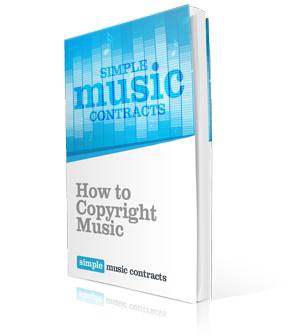Written by US Music Attorney with 20 Years Experience
Download Instantly in Word
Five New Contracts a Month
One Year of Updates
A Look At Producer Agreements
A record producer often can seem like the Wizard of Oz—someone in a far away land directing everything from behind a curtain. And in some ways, this is what a producer does, and it can’t be understated how important their job is. Though roles vary from producer to producer and even session to session, the gist of the producer’s job is to guide the sessions and music into a direction that will, hopefully, generate successful music. This can mean choosing the songs, musicians, instruments and/or numerous other controls, dependent on how much power the producer is given. It is not a stretch to say that there are thousands of cases (if not more) where a producer has taken an otherwise mediocre vision for a record and transformed it into a great album, if not a masterpiece.
With the role of a producer being so important, the best producers are, naturally, compensated generously for their work. Production work is typically paid in the form of a percentage of the royalties of an album, though some producers will just take a flat fee for their services. Producer contracts can get very complicated, depending on the extent of work they are doing, how much they are paid, and how long the sessions for a song or album will last, so it is naturally important to have a contract in place to sort all this out before the first note is played. The following are some important aspects of a music producer contract.
Payments
The contract will state how and when the producer will be compensated for services, be it in percentages or a flat rate. If the artist is also signed to a record label, provisions in this section will stipulate how the record label will pay the producer (if applicable). The contract will also usually state that the artist or the record label will provide all royalty statements to the producer as proof of income.
Royalties vs. Publishing
Depending on the agreement between the artist and producer, a music producer contract will usually stipulate that the producer is not entitled to song publishing or mechanical licenses. Of course, if this is part of the agreement, these conditions will be included in the contract or in a separate agreement.
Term
The duration of the contact will be from the date of signing and usually will continue as long as any money is owed to the producer. These clauses become more intricate when record companies are involved, and the duration may be adjusted appropriately.
Relationship
In all but extremely rare cases, the artists themselves work independently of the producers, so there must be language in the contract stating that there is no business relationship between the two parties.
Though this is an overview of the topics that will be in a music producer contract, there will often be pages and pages of detailed clauses that must be read carefully (usually by a music lawyer) and understood completely before either party enters into a relationship with the other. There will also likely be other legalese of a more general nature, such as mediation clauses and conditions that would end the contract.
A producer can be the making or breaking point of your song or album, so it’s important to choose the one that will be the best fit for your music. Perhaps just as importantly is ensuring you have a fair contract that will, hopefully, make you and your producer some considerable income.

